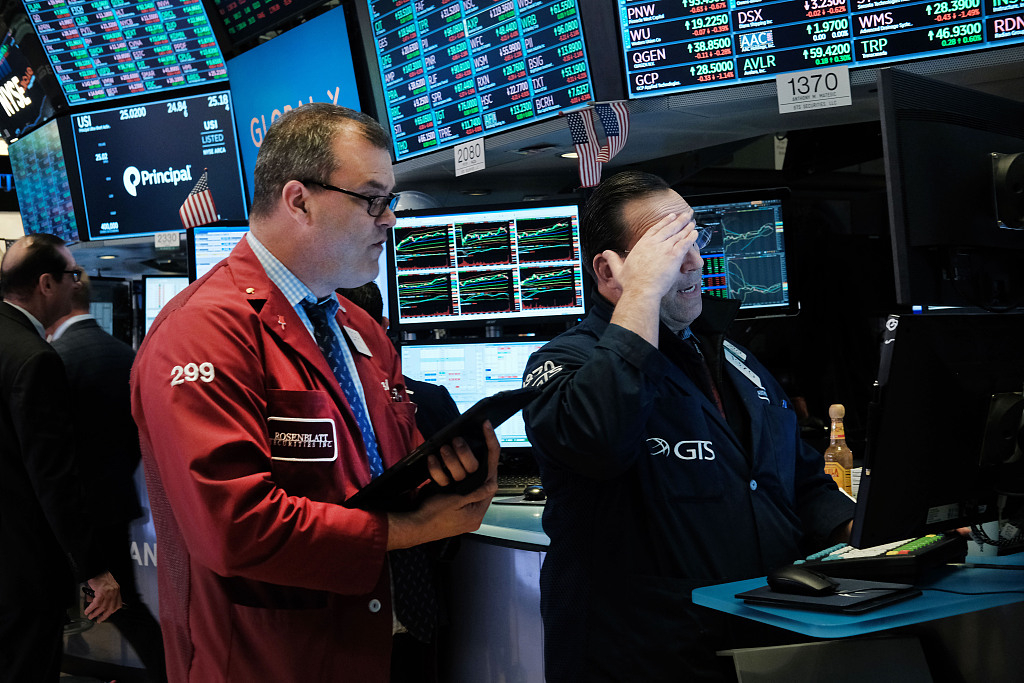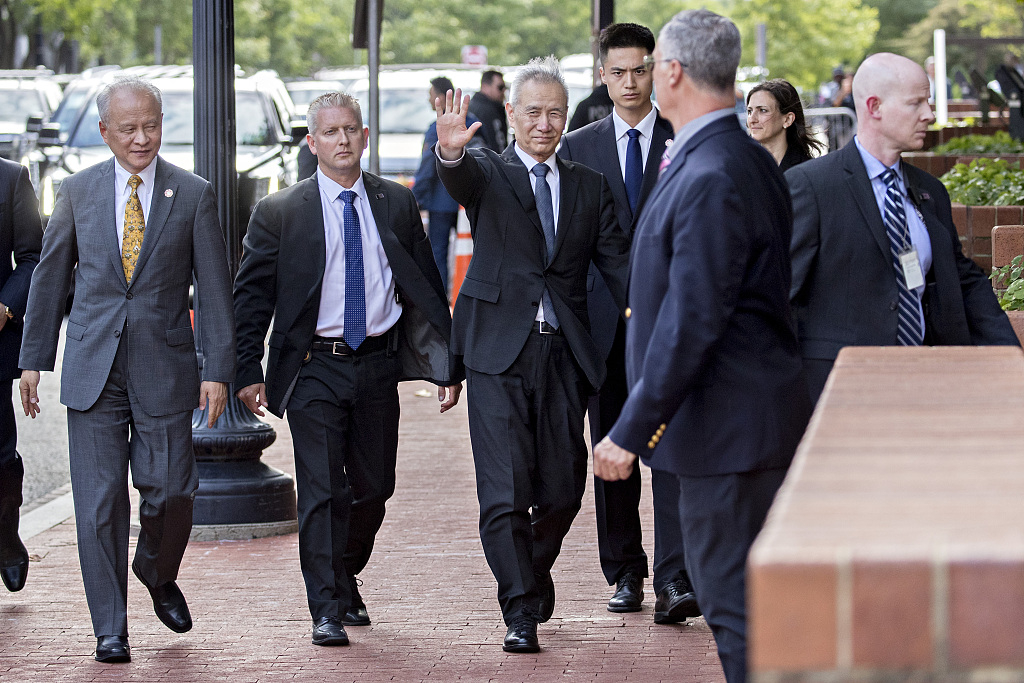
Opinion
12:14, 15-May-2019
U.S. protectionism is a blessing in disguise for China
Bobby Naderi

Editor's note: Bobby Naderi is a journalist, current affairs commentator, documentary filmmaker and member of the Writers Guild of Great Britain. The article reflects the author's opinion, and not necessarily the views of CGTN.
Although the International Monetary Fund (IMF) is warning Washington's trade war is one of the greatest hinders to global growth this year, President Donald Trump continues to brag about his renewed trade fight with China. He doesn't give a toss if the unnecessary escalation thrusts the world's largest economies back into confrontation either.
In such a world, always in your face, the trade dispute could be a blessing in disguise for China. It makes no sense any longer for a country that has achieved a lunar milestone by sending a spacecraft to the dark side of the moon to continue to be "the workshop of the world" or only host "mid-tech" industries and manufacturers, or worse, play in the populist playing field of the Trumps of this world.
China, of course, has the right to tighten the noose and rightly increase its own tariffs on American goods. At the same time, the manufacturing superpower can leave the door open for negotiators to try and reach a deal before the new tariffs come into effect. On balance, everyone knows how Trump's tariffs are raising taxes on American consumers, threatening millions of American jobs that are dependent on global chains, and destroying American farmers' lives in rural communities.

Traders work on the floor of the New York Stock Exchange (NYSE) in New York City, May 6, 2019. /VCG Photo
Traders work on the floor of the New York Stock Exchange (NYSE) in New York City, May 6, 2019. /VCG Photo
The question remains: Is China, as a leader in quantum research and with its own successful space programs, going to focus on how much it can retaliate on American goods until a real deal is reached with Washington to guarantee its manufacturing future? Or can the world's leading exporter of goods rise to the challenge and ascend to the next level? More precisely, can China adjust its economic growth model so that it depends less on product exports and more on high-value services and high technology?
Surely, the world's leading exporter of goods doesn't wish to remain the world's leading exporter of goods forever. It is precisely here that Trump's protectionism does indeed become a blessing in disguise for China and its sheer scale and potentials in high-tech, scientific and innovative fields.
Under President Xi Jinping's vision, by 2030 China should become a leading player in science and technology and a leading innovator in the world. In his words: "Great scientific and technological capacity is a must for China to be strong and for people's lives to improve. The country and even humankind won't do without innovation, nor will it do if the innovation is carried out slowly."
Fast forward to Trump's self-destructive trade dispute and China faces a harsh reality check in maintaining its global competitive edge. It is clear that Trump's 19th-century policy of protectionism in the form of tariffs and trade fight is here to stay as it is not just with China. Ahead of his reelection bid in 2020, Trump says he will continue his trade and tariff wars on other fronts, including with Canada, Mexico, the European Union and Japan, and with so many others in between.

Liu He, China's vice premier (C), waves while arriving at the Office of the U.S. Trade Representative in Washington, D.C., U.S., May 9, 2019. /VCG Photo
Liu He, China's vice premier (C), waves while arriving at the Office of the U.S. Trade Representative in Washington, D.C., U.S., May 9, 2019. /VCG Photo
In pure attention terms, this should be a wake-up call for China to seize upon the chance to accelerate national and international efforts to realize President Xi's 2030 vision: Make technology innovation the main priority and move up from manufacturing and "mid-tech" industries value chain to higher-tech, higher-value products.
To this end, China needs to invest more in next-generation Industry 4.0 manufacturing technologies, such as cyber-physical systems, the Internet of Things, cloud computing and cognitive computing. China can and should also adopt world-class practices in technology and services in collaboration with private and public sectors and startups.
It doesn't take a strategic mind to realize that China can double down on these high-tech projects and plans with the Belt and Road Initiative (BRI) as well, the biggest infrastructure development project in history.
China's success in implementing the BRI projects is impressive, and many governments and business leaders are devoting immense resources to take this all-encompassing initiative to the next level. With the right policy and investment support, China can further maintain its global competitive edge while participating countries can reap the benefits of their cooperation.
To understand the power of the BRI, start with its success and investment potentials. Giving a briefing on the final day of the BRI Forum in Beijing on April 27, President Xi said more than 64 billion U.S. dollars' worth of deals were signed. This followed on his opening speech, where he ensured the sustainability of BRI projects commercially and financially to improve the livelihoods of communities in participating countries.
In this increasingly unpredictable world, it's with high-tech industries that China can and should begin the long overdue transition – not with Trump's trade war and certainly not by betting on his seemingly strange and unexpected acts. Can there be any doubt that China has what it takes to climb the industrial ladder, improve its global competitive position, and account for a greater share of global technology markets and growth?
To remain globally competitive, Chinese manufacturers can and should improve innovation, boost productivity and flexibility, diversify into higher-value sectors, and move up the industrial value chain with higher-tech, innovative products and multilateral approach. To get perspective on much of everything, there's still a greater world out there for the Asian giant than the one fused to Trump and his forever trade war and tariffs.
(If you want to contribute and have specific expertise, please contact us at opinions@cgtn.com.)

SITEMAP
Copyright © 2018 CGTN. Beijing ICP prepared NO.16065310-3
Copyright © 2018 CGTN. Beijing ICP prepared NO.16065310-3